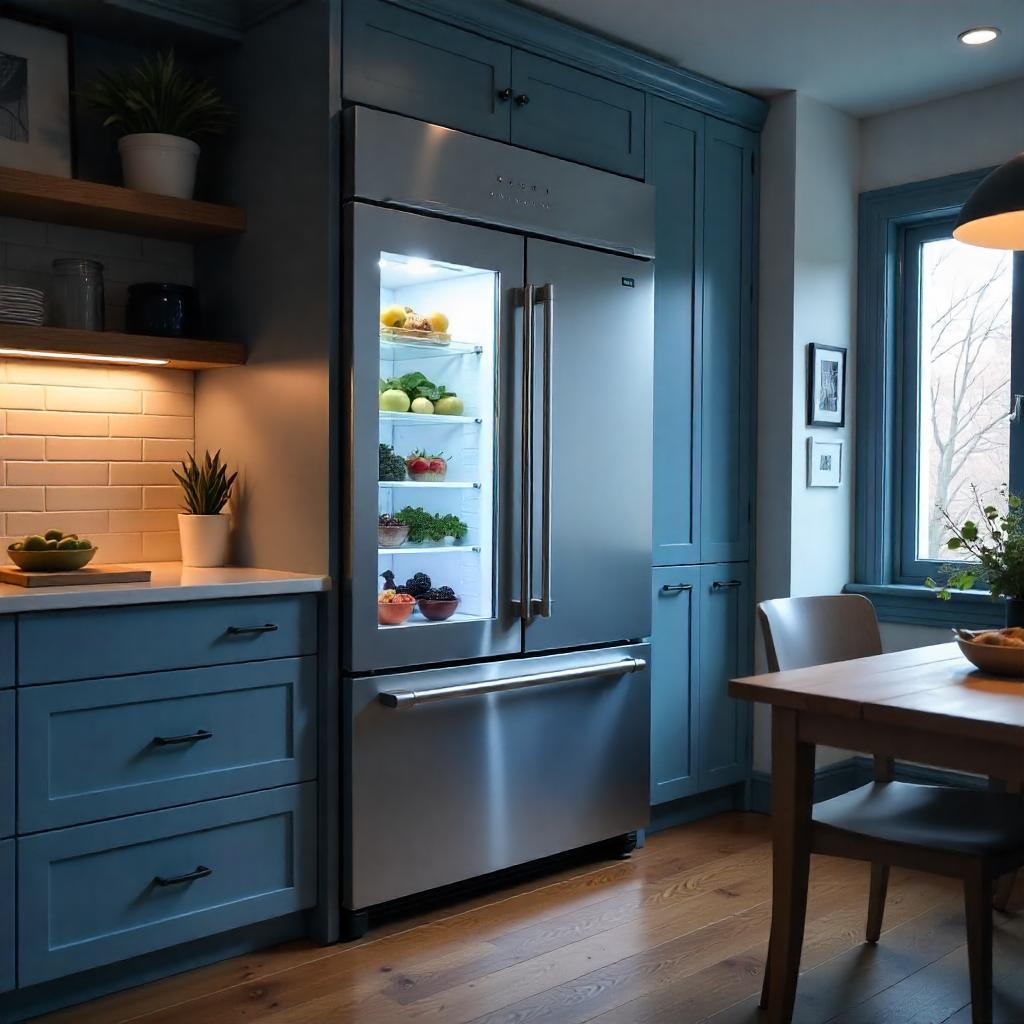Notifications

7 minutes, 56 seconds
-120 Views 0 Comments 0 Likes 0 Reviews

In recent years, a new trend has been quietly gaining popularity among homeowners — the use of industrial-grade appliances in residential kitchens. One of the most surprising shifts is the rise of the industrial refrigerator for home use. Once considered exclusively for restaurants and large commercial spaces, these heavy-duty refrigerators are now being embraced by homeowners who want durability, capacity, and efficiency that standard home fridges can’t match. In this article, we’ll explore why industrial refrigerators are becoming a top choice for modern homes, what benefits they offer, and how they compare to traditional and commercial refrigerators.
Before diving into the benefits, it’s important to clarify what an industrial refrigerator actually is. Industrial refrigerators are built for high-volume cooling, designed to store large quantities of food or perishable items efficiently. They usually have stronger compressors, better insulation, and robust materials that make them last longer under heavy use. These refrigerators are common in restaurants, hospitals, and supermarkets but are now available in sizes and styles suitable for home kitchens.
One of the biggest advantages of an industrial refrigerator is its cooling power. These refrigerators maintain consistent temperatures, which helps keep food fresher for longer periods. Unlike regular home refrigerators that may fluctuate in temperature, industrial models use advanced compressors and insulation technology to ensure optimal freshness.
Families today often require more fridge space due to bulk shopping, meal prepping, or simply having diverse dietary needs. Industrial refrigerators typically offer much larger storage volumes than standard home units, allowing for more organized and spacious food storage. This makes them ideal for large families or those who entertain guests regularly.
Industrial refrigerators are built with commercial-grade materials, meaning they can withstand frequent opening and closing, temperature changes, and heavy use without breaking down. This durability means fewer repairs and a longer lifespan, ultimately making them a better investment.
Contrary to popular belief, many industrial refrigerators now come in sleek, modern designs that blend well with contemporary home kitchens. Brands have innovated to offer stainless steel finishes, customizable doors, and smart technology, so homeowners get both function and aesthetic appeal.
At this point, you might wonder how an industrial refrigerator differs from a commercial refrigerator. While the two terms are often used interchangeably, there are subtle differences worth noting.
A commercial refrigerator is typically designed for retail or restaurant use, focusing more on storage efficiency and accessibility. These units prioritize quick access and visibility, sometimes featuring glass doors or open shelving to allow staff to grab items quickly. In contrast, industrial refrigerators focus more on heavy-duty operation, temperature stability, and robustness.
Interestingly, some commercial refrigerators have become popular among homeowners for their spaciousness and design. If you want to explore options between industrial and commercial types, the article on the need for a commercial refrigerator offers a detailed comparison.
To better understand why industrial refrigerators are catching on, here are a few examples of how homeowners use them effectively:
Large Families: A family of six found their standard refrigerator too small, leading to frequent trips to the grocery store. After installing an industrial refrigerator with multiple compartments and adjustable shelves, they now store bulk groceries and leftovers efficiently, saving time and money.
Home Cooks and Chefs: People who love cooking at home often buy ingredients in large quantities. An industrial refrigerator allows them to store meats, fresh vegetables, and prepared meals safely and separately, improving kitchen workflow.
Small Home-Based Businesses: Some entrepreneurs who run food delivery or catering from home rely on industrial refrigerators to keep their inventory fresh and safe for longer hours.
One common concern is that industrial refrigerators consume a lot of energy. While it’s true that bigger compressors use more power, many modern industrial units come with energy-saving features such as LED lighting, smart temperature controls, and efficient insulation. When compared with frequently opened smaller fridges that struggle to maintain temperature, industrial models can actually be more energy-efficient in busy households.
If you’re considering upgrading to an industrial refrigerator, keep these tips in mind:
Measure Your Space: Industrial refrigerators can be larger than standard fridges, so ensure your kitchen has enough room.
Assess Your Storage Needs: Think about how much space you really need. Buying too large a unit can waste energy and space.
Check Temperature Settings: Look for models with adjustable temperature zones for different types of food.
Consider Noise Levels: Some industrial refrigerators can be noisier, so check reviews if this is a concern.
Look for Warranty and Service: Since this is a significant investment, choose brands with good customer support.
In summary, industrial refrigerators are no longer just for commercial kitchens. Their durability, large capacity, and advanced cooling features make them an excellent choice for many modern households. Whether you have a large family, enjoy cooking, or run a food-related home business, these refrigerators offer practical advantages that standard models can’t match.
From my perspective, investing in an industrial refrigerator can be a smart move if you need reliable, long-lasting refrigeration that supports a busy lifestyle. While the initial cost may be higher, the benefits in performance and longevity usually outweigh the price. Plus, with modern designs, they can fit nicely into a stylish kitchen setup.

